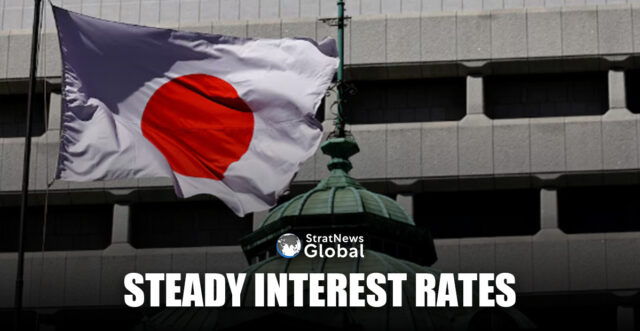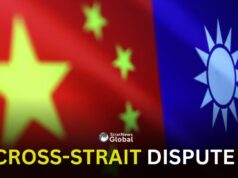The Bank of Japan held interest rates steady on Thursday, but a dissenting board member’s call to raise borrowing costs signaled the bank’s continued trajectory toward tightening policy early next year.
The Bank of Japan held interest rates steady on Thursday, but a dissenting board member’s call to raise borrowing costs signaled the bank’s continued trajectory toward tightening policy early next year.
However, dissenting board member Naoki Tamura, a known policy hawk, proposed raising interest rates to 0.5% on the view inflationary risks were building. His proposal was voted down.
The BOJ’s meeting concluded hours after the U.S. Federal Reserve cut interest rates but signalled a more cautious path of easing next year, sending global stocks sharply lower.
“The decision to keep rates on hold was widely expected by investors, so I don’t expect a big market reaction,” said Ben Bennett, Asia-Pacific investment strategist at Legal and General Investment Management in Hong Kong.
“That said, the hawkish Fed dot plot overnight gave the BOJ an option to increase rates, and there was one dissenting vote for a 25-bp hike, so it looks like rates will be going up early in 2025.”
The yen fell immediately after the decision to hit a one-month low of 155.28 to the dollar, before paring some of the losses. Japan’s Nikkei share average pared declines as the yen weakened.
Markets are focusing on BOJ Governor Kazuo Ueda’s press conference, expected at 3:30 p.m. JST (0630 GMT), for clues on whether the bank could raise rates in January or March.
“The yen has weakened as a result of the BOJ’s decision to stand pat. Ueda may thus signal the bank’s intention to raise interest rates in the near-term horizon,” said former BOJ board member Takahide Kiuchi, who is now an analyst at Nomura Research Institute.
Many market players see a declining yen among key incentives for the BOJ to hike rates or offer hawkish communication, as the currency’s weakness pushes up inflation via higher import costs.
Steady Recovery
In a statement announcing the policy decision, the BOJ said Japan’s economy was recovering moderately albeit with some weakness. It maintained its assessment that consumption was increasing moderately as a trend.
The BOJ also reiterated its warning that uncertainty surrounding Japan’s economy and prices remained high.
Aside from the rate decision, the BOJ released its findings of a review on the pros and cons of various monetary easing tools deployed during its 25-year battle with deflation.
In the review, the BOJ warned of the side effects of various unconventional monetary easing measures that meant they cannot be a substitute to traditional tools like interest rate cuts.
The BOJ ended negative interest rates in March and raised its short-term policy target to 0.25% in July. It has signalled a readiness to hike again if wages and prices move as projected.
All respondents in a Reuters poll taken earlier this month expect the BOJ to raise rates to 0.50% by end-March, though they had been divided on whether the move would come in December, January or March.
Japan’s economy expanded an annualised 1.2% in the three months to September, slowing from the previous quarter’s 2.2% increase, with consumption up a feeble 0.7%.
BOJ policymakers hope regular pay, which has risen at a year-on-year pace of 2.5% to 3% recently, keeps increasing and supports consumption.
There are growing signs companies are keen to continue hiking pay due to intensifying labour shortages, boding well for the BOJ’s plan to keep raising interest rates gradually.
But slowing demand in China and uncertainty over the fallout from Trump’s policies could weigh on corporate profits and discourage some of them from boosting pay.
(With inputs from Reuters)





